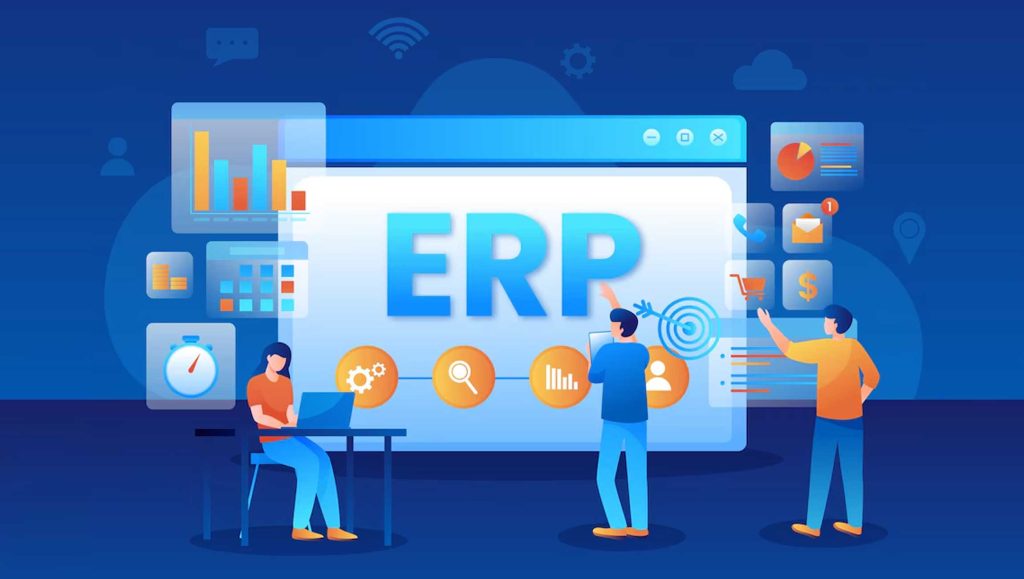Enterprise Resource Planning (ERP) systems have become the backbone of modern business operations. They integrate various functions—finance, HR, supply chain, and more—into a single, unified system, driving efficiency and transparency across organizations. In today’s fast-paced and complex business environment, ERPs stand out as critical tools for managing and analyzing vast amounts of data, facilitating informed decision-making, and enhancing operational agility. With the advent of advanced technologies, ERPs are evolving rapidly, promising even greater integration and intelligence. Understanding the significance of ERPs is crucial for any business aiming to streamline processes, increase productivity, and stay competitive in the ever-changing global marketplace.
The Evolution and Expansion of ERP Systems in Modern Business
The growth of Enterprise Resource Planning (ERP) systems in the business world has been nothing short of remarkable. Initially designed to improve manufacturing processes, ERPs have evolved to encompass a wide range of business functions, including finance, human resources, customer relationship management, and supply chain operations. This expansion reflects the growing demand for integrated, real-time data analysis across various business sectors.
Modern ERPs leverage cutting-edge technologies like AI and machine learning to offer predictive analytics, enhancing decision-making and strategic planning. Cloud-based ERP solutions have further propelled this growth, offering scalability, mobility, and cost-effectiveness, making them accessible to not just large corporations but also small and medium-sized enterprises. As businesses increasingly recognize the value of data-driven insights and operational efficiency, the adoption of ERP systems has surged, transforming them into indispensable tools for competitive advantage in the global market.
Read More: SalesTechStar Interview with Karel Papik, Co-founder of Product Fruits
Modern ERP Solutions: Leading the Charge in Business Efficiency
Enterprise Resource Planning (ERP) systems have evolved into indispensable tools for businesses, offering integrated solutions that streamline operations and enhance decision-making. As technology advances, the variety and capability of ERP tools grow, each uniquely catering to different business needs. Let’s delve into some of the top ERP tools currently shaping the industry.
1. Oracle NetSuite ERP:
Ideal for global businesses, Oracle NetSuite ERP excels in scalability and industry-specific customization. It supports various sectors like healthcare, manufacturing, and retail, offering robust features for financial and inventory management.
2. Odoo ERP:
Odoo stands out for its customizability and affordability, especially for small businesses. Its free community version caters to a range of business needs, from billing and accounting to manufacturing and project management.
3. SAP Business One:
Designed for growing companies, SAP Business One offers comprehensive features that scale with your business. It’s particularly effective in streamlining key business functions and enhancing operational efficiency.
4. ERPNext:
A free, open-source ERP system, ERPNext is particularly suited for small and medium-sized businesses. It offers a range of features from sales to human resources, with a focus on ease of use and cost-effectiveness.
5. Microsoft Dynamics 365:
This ERP system is known for its dynamic use cases and AI-powered insights. It offers customizable flows and strong security measures, making it a versatile choice for diverse business operations.
6. Acumatica Cloud ERP:
Acumatica is praised for its user experience, offering a comprehensive set of business management tools. However, it lacks extensive HR tools, which may be a consideration for some businesses.
7. Katana:
Katana specializes in inventory management, providing a targeted solution for businesses with significant inventory needs. Its focused approach makes it a strong contender in the ERP market.
8. Sage Intacct:
Known for its robust accounting features, Sage Intacct is geared towards small and medium-sized businesses. It offers efficient financial management and reporting tools, making it a solid choice for businesses focusing on financial operations.
Navigating the Future: Emerging Trends in ERP Technology
The landscape of Enterprise Resource Planning (ERP) systems is rapidly evolving, propelled by technological advancements and changing business needs. In the near future, we can expect ERPs to increasingly leverage Artificial Intelligence (AI) and Machine Learning (ML), offering more sophisticated analytics and decision-making capabilities. This will enable predictive maintenance, enhanced forecasting, and smarter resource allocation.
Cloud-based ERP solutions will continue to dominate, offering greater scalability, flexibility, and cost-effectiveness. They will likely become more modular, allowing businesses to tailor solutions to their specific needs. Integration with the Internet of Things (IoT) will enable ERPs to gather and analyze data from a wider range of sources, leading to more efficient operations and improved customer experiences.
Sustainability will also become a key focus, with ERPs playing a crucial role in monitoring and managing environmental impacts, energy consumption, and supply chain sustainability. User experience will remain a priority, with ERPs becoming more intuitive and user-friendly, reducing training time and improving efficiency. As these trends unfold, ERPs will become even more integral to business strategy and operations, driving innovation and competitiveness.
Conclusion
The evolution of ERP systems is geared towards more intelligent, flexible, and sustainable business management. Embracing these future trends will enable organizations to leverage cutting-edge technology for enhanced efficiency, smarter decision-making, and a stronger competitive edge in the rapidly evolving global business landscape.
Read More: An Invoice Generator For B2B Businesses – Relevance Of Invoice Generators In The B2B Sector





















